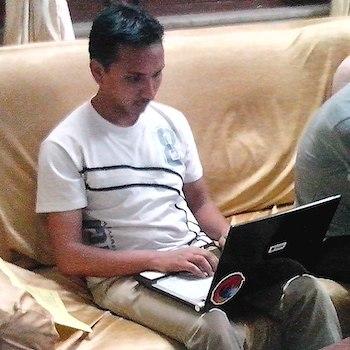Which snowflake caused the avalanche? It's a ridiculous question because we all know the answer: Blame can't be placed on any particular snowflake; it was the accumulation of billions of them that caused the avalanche.
Yet, we don't apply the "snowflake-avalanche lesson" to social media. On social media, we view other people as the problem. But this is woefully incorrect. If you like or share misinformation on social media, that triggers the underlying algorithms to show the content to more people. Just like spreading a rumor in high school, there is little moral distinction between the person who created the lie and the person who helped perpetuate it.
That's why the best person to stop the spread of misinformation is you. How can you do that? Here are some tips:
(1) Beware that humans are inherently tribal. We are more likely to believe something that a friend or political ally told us than a stranger or political opponent (or even an expert). To combat this, you must treat information given to you by your friends with the same level of skepticism that you treat information provided by your opponents. Just because something sounds good and reaffirms your prior beliefs doesn't mean it actually is true.
(2) Be skeptical of anything that goes viral. Viral stories are often exaggerated, hyperbolized, or half-true. Crucially, remember that something that is "half-true" is still a lie. In fact, the most effective lies are usually half-true.
(3) Before you click "like" or "share," ask yourself, "Am I really sure this is true?" If you aren't, then don't do it. It is intellectual cowardice to justify sharing dubious content by thinking, "I don't know if it's true, but it's worth reading." Either you want to be a responsible member of society or you don't. Either you're helping mend our social fabric or you're helping rip it apart. Act accordingly.
(4) Block people who regularly share misinformation.* While it may not prevent them from continuing to lie, at the very least, it will prevent you from being tempted to share their lies.
(5) Be cognizant of the real-world impacts of your online behavior. This advice comes from an editorial in the European Management Journal. Be aware that there is a human being on the other side of the screen who has real feelings and whose day (or life) can be ruined by social media. The editorial argues that we should foster a sense of "digital empathy."
No one person can fix our toxic social media culture. But if we each make a contribution, then just like those snowflakes, we can create an avalanche -- but an avalanche of good rather than one of evil.
*Note: As a "public figure," I've been the target of malicious lies, cyberbullying, and online harassment, often by allegedly "respectable" writers or academics. Usually, this occurs on Twitter. Not only do I block people who insult me or mischaracterize my articles, but I also block anyone who likes or shares such misinformation about me. I've proudly blocked well over 1,500 Twitter users. I might throw a party when I get to 2,000.




